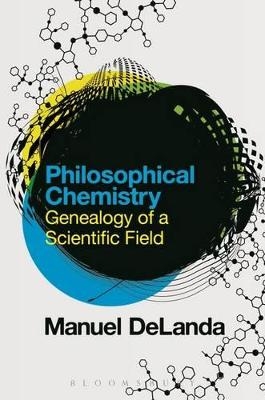
Philosophical Chemistry
Genealogy of a Scientific Field
Seiten
2015
Bloomsbury Academic (Verlag)
978-1-4725-9183-8 (ISBN)
Bloomsbury Academic (Verlag)
978-1-4725-9183-8 (ISBN)
Philosophical Chemistry furthers Manuel DeLanda’s revolutionary intervention in the philosophy of science and science studies. Against a monadic and totalizing understanding of science, DeLanda’s historicizing investigation traces the centrality of divergence, specialization and hybridization through the fields and subfields of chemistry.
The strategy followed uses a series of chemical textbooks, separated from each other by fifty year periods (1750, 1800, 1850, and 1900), to follow the historical formation of consensus practices. The three chapters deal with one subfield of chemistry in the century in which it was developed: eighteenth-century inorganic chemistry, nineteenth-century organic chemistry, and nineteenth-century physical chemistry. This book creates a model of a scientific field capable of accommodating the variation and differentiation evident in the history of scientific practice. DeLanda proposes a model that is made of three components: a domain of phenomena, a community of practitioners, and a set of instruments and techniques connecting the community to the domain.
Philosophical Chemistry will be essential reading for those engaged in emergent, radical and contemporary strands of thought in the philosophy of science and for those scholars and students who strive to practice a productive dialogue between the two disciplines.
The strategy followed uses a series of chemical textbooks, separated from each other by fifty year periods (1750, 1800, 1850, and 1900), to follow the historical formation of consensus practices. The three chapters deal with one subfield of chemistry in the century in which it was developed: eighteenth-century inorganic chemistry, nineteenth-century organic chemistry, and nineteenth-century physical chemistry. This book creates a model of a scientific field capable of accommodating the variation and differentiation evident in the history of scientific practice. DeLanda proposes a model that is made of three components: a domain of phenomena, a community of practitioners, and a set of instruments and techniques connecting the community to the domain.
Philosophical Chemistry will be essential reading for those engaged in emergent, radical and contemporary strands of thought in the philosophy of science and for those scholars and students who strive to practice a productive dialogue between the two disciplines.
Manuel DeLanda is a distinguished writer, artist and philosopher. He began his career in experimental film, later becoming a computer artist and programmer. He is now Professor of Philosophy in the Department of Architecture at the University of Pennsylvania, USA.
Introduction.
Chapter One: Classical Chemistry.
A Multiplicity of Cognitive Tools.
From Personal to Consensus Practice: 1700-1800.
Chapter Two: Organic Chemistry.
The Specialization of Cognitive Tools.
From Personal to Consensus Practice: 1800-1900.
Chapter Three: Physical Chemistry.
The Hybridization of Cognitive Tools.
From Personal to Consensus Practice: 1800-1900.
Chapter Four: Social Chemistry.
Conventions, Boundaries, and Authority.
Bibliography
Index
| Erscheint lt. Verlag | 21.5.2015 |
|---|---|
| Verlagsort | London |
| Sprache | englisch |
| Maße | 129 x 198 mm |
| Gewicht | 381 g |
| Themenwelt | Geisteswissenschaften ► Philosophie ► Erkenntnistheorie / Wissenschaftstheorie |
| Geisteswissenschaften ► Philosophie ► Geschichte der Philosophie | |
| Geisteswissenschaften ► Philosophie ► Philosophie der Neuzeit | |
| Naturwissenschaften ► Chemie | |
| ISBN-10 | 1-4725-9183-6 / 1472591836 |
| ISBN-13 | 978-1-4725-9183-8 / 9781472591838 |
| Zustand | Neuware |
| Haben Sie eine Frage zum Produkt? |
Mehr entdecken
aus dem Bereich
aus dem Bereich
die Grundlegung der modernen Philosophie
Buch | Softcover (2023)
C.H.Beck (Verlag)
CHF 25,20
Buch | Softcover (2023)
Reclam, Philipp (Verlag)
CHF 9,80


![Was heißt Denken?. Vorlesung Wintersemester 1951/52. [Was bedeutet das alles?] - Martin Heidegger](/media/113619842)